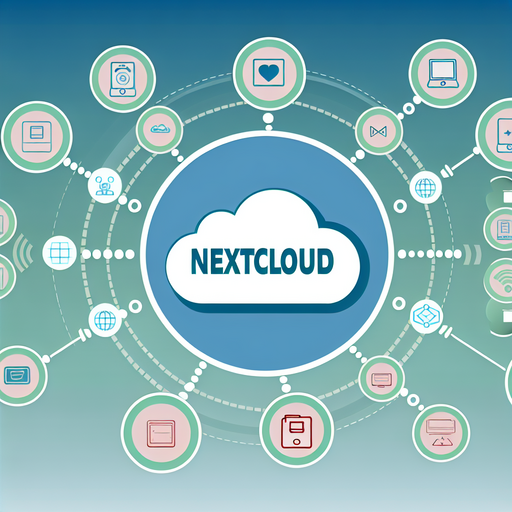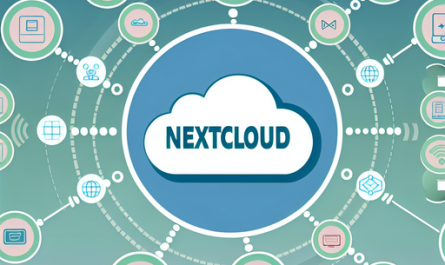Nextcloud and LeadSquared: Empower Your Cloud and CRM Experience
Introduction to Nextcloud
In today’s digital age, cloud storage solutions have become essential for businesses and individuals alike. One platform that has gained significant popularity is Nextcloud. With its comprehensive suite of features, Nextcloud stands out as a powerful, open-source cloud storage solution that offers unparalleled data privacy and security.
Nextcloud isn’t just a cloud storage service; it’s a robust platform that supports a wide range of applications. By integrating various apps, you can extend its functionalities to meet the unique needs of your business or personal projects. One such powerful integration is with LeadSquared.
What is LeadSquared?
LeadSquared is a versatile customer relationship management (CRM) tool designed to streamline and optimize your business workflows. Whether it’s lead management, marketing automation, or customer service, LeadSquared offers an all-in-one solution that effectively boosts your sales and marketing efforts.
With LeadSquared, businesses can automate lead capture, manage customer interactions, and track sales performance. It provides detailed analytics and reporting features that help you understand customer behavior and improve customer engagement.
Nextcloud and LeadSquared Integration: A Seamless Synergy
The integration of Nextcloud and LeadSquared creates a powerful combination that addresses both your cloud storage and CRM needs. Here are some key benefits of this integration:
1. Streamlined Data Management
Integrating LeadSquared with Nextcloud allows you to manage your customer data and business documents in a seamless manner. Store all your important files in Nextcloud and link them directly to the relevant customer records in LeadSquared. This ensures that your data is always up-to-date and easily accessible.
2. Enhanced Collaboration
Nextcloud’s collaboration features, such as shared folders, real-time editing, and file versioning, complement LeadSquared’s CRM functionalities. Team members can collaborate on customer projects, share documents, and update CRM records in real time, leading to improved productivity and teamwork.
3. Improved Security and Compliance
Nextcloud offers top-notch security features, including end-to-end encryption, two-factor authentication, and detailed access controls. When integrated with LeadSquared, you can ensure that your customer data and business files are securely stored and easily retrieved, helping you comply with data privacy regulations.
4. Automated Workflows
By integrating LeadSquared’s marketing automation capabilities with Nextcloud’s file management, you can automate complex workflows. For instance, create workflows that automatically store marketing materials created in Nextcloud into a specific folder in LeadSquared for future campaigns.
5. Comprehensive Insights
The integration allows you to leverage LeadSquared’s detailed analytics to gain insights into your business performance. With all your documents and records stored in Nextcloud, you can analyze customer behaviors and business trends more effectively, enabling data-driven decision-making.
How to Integrate Nextcloud with LeadSquared
Integrating Nextcloud with LeadSquared is a straightforward process that can significantly enhance your operational efficiency. Here’s a step-by-step guide to help you get started:
Step 1: Obtain API Keys from LeadSquared
To connect Nextcloud with LeadSquared, you need to obtain the API keys from your LeadSquared account. Navigate to the “Settings” section in LeadSquared, and find the API settings to generate your API keys.
Step 2: Install Nextcloud App in LeadSquared
Within the LeadSquared platform, go to the App Marketplace and search for the Nextcloud app. Install the app and follow the on-screen instructions to configure it with your Nextcloud instance.
Step 3: Connect Your Nextcloud Account
Once the Nextcloud app is installed in LeadSquared, you need to connect your Nextcloud account. Enter your Nextcloud instance URL along with your username and password, then authorize the integration.
Step 4: Configure Integration Settings
After connecting your Nextcloud account, you can configure the integration settings to match your requirements. Set up rules for how documents should be synced between Nextcloud and LeadSquared, which folders to monitor, and any specific actions that need automation.
Step 5: Start Using the Integration
With the integration set up, you can now start using the combined features of Nextcloud and LeadSquared. Collaborate on files, manage CRM records, and automate workflows with ease.
Use Cases and Examples
To better understand the practical applications of integrating Nextcloud with LeadSquared, let’s look at some specific use cases:
1. Sales Team Collaboration
Sales teams can use the integration to collaborate on proposals and contracts stored in Nextcloud, while updating customer interactions in LeadSquared. This ensures that all team members have access to the latest documents and customer information.
2. Marketing Campaign Management
Marketing teams can automate the storage of campaign assets in Nextcloud while managing campaign activities in LeadSquared. This streamlines the campaign management process and keeps all marketing materials organized.
3. Customer Support Integration
Customer support teams can link support files and documentation stored in Nextcloud to customer records in LeadSquared. This helps in providing timely and efficient support to customers by having all relevant information easily accessible.
Conclusion
Integrating Nextcloud with LeadSquared offers a seamless solution to streamline your cloud storage and CRM processes. This holistic approach enhances data management, collaboration, security, and workflow automation, providing you with the tools you need to drive business success.
By leveraging the combined capabilities of Nextcloud and LeadSquared, you can achieve higher productivity, better customer insights, and improved operational efficiency. Start exploring the integration today and transform the way you handle your cloud storage and CRM needs.



